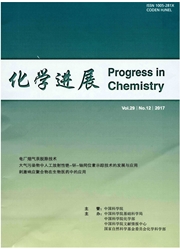

 中文摘要:
中文摘要:
燃料电池是以碳氢化合物为燃料的一种新型、清洁的发电装置,而其中的质子交换膜燃料电池由于具有可快速启动的优点可应用于机动车等领域。所用的质子交换膜需要具有高的质子传导性、低的甲醇/水渗透性、好的机械和热稳定性以及合适的价格等特点,但目前已经工业化的Nafion膜并未能全部满足上述要求。为了解决这些问题,目前已经开发了多种新的质子交换膜。本文对其中的磺化嵌段型聚醚砜、磺化嵌段型聚酰亚胺和苯乙烯基嵌段共聚物在质子交换膜燃料电池中的应用进行了综述,并与Nafion膜和相应的无规共聚物的性能进行了比较。最后展望了嵌段共聚物在质子交换膜领域的发展趋势。
 英文摘要:
英文摘要:
Fuel cells represent a clean altemative to current technologies for utilizing hydrocarbon fuel resources. Proton exchange membrane fuel cells (PEMFCs) have acquired due importance as they are best suited for applications where a quick start up is required such as in automobiles. The prime requirements of fuel cell membranes are high proton conductivity, low methanol/water permeability, good mechanical and thermal stability and moderate price. To satisfy the requiement of PEMFC, many new proton exchange membranes were developed. This paper reviews recent progress in the development of sulfonated block copolymers as membrane materials to replace the perfluorinated sulfonated membrane (e. g. Nation) for fuel cell applications to improve the performances of fuel cells. Special attention is paid to sulfonated poly(arylene ether), sulfonated polyimide and sulfonated styrene based block copolymers, which have advantageous properties as compared to that of Nation and analogous random copolymers of the same overall composition. Finally, the development trend of sulfonated block copolymers is prospected.
 同期刊论文项目
同期刊论文项目
 同项目期刊论文
同项目期刊论文
 Novel modification method to prepare crosslinked sulfonated poly(ether ether ketone)/silica hybrid m
Novel modification method to prepare crosslinked sulfonated poly(ether ether ketone)/silica hybrid m Organic-inorganic crosslinked and hybrid membranes derived from sulfonated poly(arylene ether sulfon
Organic-inorganic crosslinked and hybrid membranes derived from sulfonated poly(arylene ether sulfon Novel method for the preparation of ionically crosslinked sulfonated poly(arylene ether sulfone)/pol
Novel method for the preparation of ionically crosslinked sulfonated poly(arylene ether sulfone)/pol 期刊信息
期刊信息
